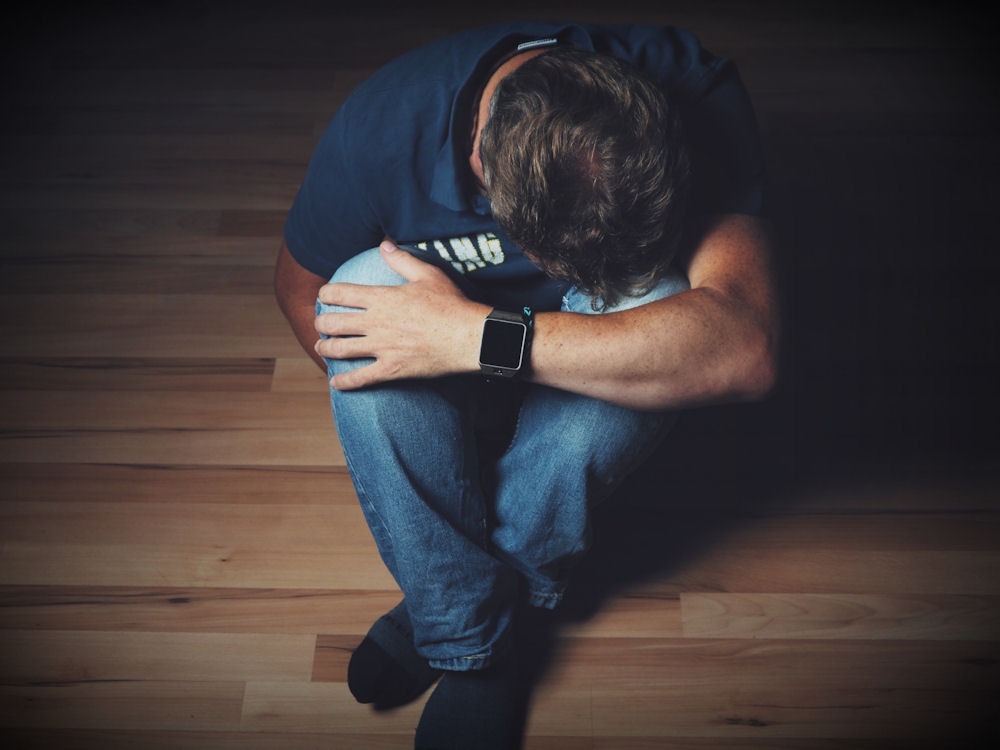What’s the Relationship Between Male Loneliness and Addiction?
Loneliness affects millions of men, but many don’t realize how closely it connects to addiction. When men feel isolated or disconnected, they’re more likely to turn to substances for relief. This pattern creates a dangerous cycle where loneliness fuels substance use, and substance use increases isolation.
Understanding male loneliness and addiction helps explain why traditional approaches to recovery sometimes fall short. At Immersive Recovery in Encinitas, California, we recognize that the key to successfully treating men with addiction and mental illness means addressing the physical, social, and psychological challenges they face, and the underlying factors that often exacerbate these diseases.
The Prevalence of Loneliness
The escalating loneliness crisis in America may appear to have originated from the isolation mandated by the COVID-19 pandemic; however, the reality is that this pattern of isolation and loneliness commenced well before COVID and persists to this day.
The profound irony of the Internet is that, while it has connected most of us more than ever, it has also played a role in the alarming rise of loneliness and isolation. The effects of loneliness and depression on individuals and society as a whole are quite significant.
Loneliness frequently leads to depression, which can adversely affect a person’s quality of life. Depression not only alters one’s perception of the world but also has harmful consequences for physical health in the long run. Individuals suffering from depression are at a higher risk for heart attacks and strokes, among other potentially life-threatening conditions.
Nevertheless, no one is fated to remain lonely or depressed indefinitely. It requires bravery and a willingness to confront these challenges, but it is achievable.
What is Male Loneliness?
Male loneliness isn’t just being alone—it’s feeling disconnected even when surrounded by people. According to recent data from the National Institute of Mental Health (NIMH), nearly 35% of men reported that they felt lonely regularly.
This type of isolation affects men significantly, as they aren’t known to be as vocal about their thoughts or challenges. Due to various factors, stigma places barriers and obstacles in the way that block individuals from receiving the treatment they need to overcome or better cope with their mental health challenges.
Types of Male Loneliness

Isolation affects men differently from women due to cultural expectations and social patterns. Here are the common types of male loneliness:
- Social loneliness: Lacking a network of friends or community connections
- Emotional loneliness: Missing close, intimate relationships where vulnerability is safe
- Existential loneliness: Feeling disconnected from purpose or meaning
Men often struggle to recognize or admit loneliness because society teaches them to be self-reliant. This makes the problem worse, creating feelings of shame and fear around wanting normal human needs for connection.
The Link Between Male Loneliness and Depression
Depression is a multifaceted mental health condition. Experiencing depression can sometimes stem solely from biological and genetic factors. An individual may simply possess lower-than-normal levels of specific neurotransmitters such as serotonin and dopamine. However, for many individuals, depression develops as a consequence of life experiences or circumstances.
One such circumstance is the experience of loneliness. Even if one is highly self-reliant and possesses robust self-esteem, there remains an inherent need for companionship, positive reinforcement, and validation from others.
Spending the majority of your time in solitude can make it exceedingly challenging to fulfill these needs. Moreover, even when in the company of others, the absence of close platonic or romantic relationships can likely result in feelings of loneliness. Research indicates that prolonged periods of loneliness frequently culminate in clinical depression.
The Link Between Male Loneliness and Addiction
Research from the National Institute on Drug Abuse shows that loneliness changes brain chemistry in ways that make addiction more likely. When men feel isolated, their brains produce less dopamine—the chemical that creates feelings of reward and pleasure. Substances temporarily fill this gap, making them feel connected or content.
The connection works both ways. Loneliness increases substance use, but substance use also increases isolation. Men may drink or use drugs alone, hide their use from others, or lose relationships because of their addiction. This creates what experts call the “addiction loneliness cycle.”
Studies indicate that men experiencing chronic loneliness are 50% more likely to develop substance use disorders compared to men with strong social connections.
Signs That Male Loneliness is Causing Addiction
Recognizing when loneliness contributes to addiction helps identify the problem early. These warning signs often appear together:
Behavioral changes
- Drinking or using drugs primarily when alone: Using substances becomes a way to cope with solitude
- Avoiding social activities: Withdrawing from friends, family, or hobbies that were once enjoyable
- Increasing substance use during emotional low points: Using more during periods of stress, sadness, or isolation
Emotional patterns
- Persistent feelings of emptiness: A sense that something is missing, even when basic needs are met.
- Difficulty connecting with others: Feeling like an outsider even in social situations.
- Using substances to feel “normal”: Needing alcohol or drugs to feel comfortable in social settings.
Men often describe feeling like they’re “going through the motions” of life without real connection to others.
Why Men Face Unique Challenges With Isolation
Cultural expectations make it harder for men to address loneliness. From childhood, many men learn that showing vulnerability or admitting emotional needs is weakness. This creates barriers to forming close relationships and seeking help. It’s important to recognize why loneliness, especially in men, occurs. Here are some common reasons why men face challenges of isolation.
- Human beings have evolved to exist within groups and communities; this is inherent to our nature.
- When we isolate ourselves for extended periods, not all of our emotional requirements are fulfilled.
- When a significant number of our emotional needs remain unaddressed, it frequently leads to depression.
Common barriers men face include:
- Communication patterns: Men are often taught to solve problems independently rather than talk about feelings
- Friendship styles: Male friendships frequently center around activities rather than emotional sharing
- Help-seeking stigma: Admitting loneliness or addiction can feel like personal failure
According to the American Psychological Association, men are 30% less likely than women to seek mental health treatment—a gap often tied to men’s mental health stigma. This reluctance extends to addressing both loneliness and substance use issues.
The pressure to appear successful and in control can make men hide their struggles until problems become severe. By the time many men seek help, both loneliness and addiction have become deeply entrenched.
Health Effects of Chronic Loneliness

Loneliness affects both mental and physical health in measurable ways. Research published in the Journal of Health and Social Behavior found that chronic isolation impacts the body similarly to smoking 15 cigarettes daily.
Mental health impacts
- Depression and anxiety: Lonely men show 40% higher rates of depression and anxiety
- Cognitive decline: Isolation affects memory and decision-making abilities
- Increased stress hormones: Chronic loneliness elevates cortisol levels
Physical health consequences
- Weakened immune system: Making recovery from illness slower
- Cardiovascular problems: Higher risk of heart disease and stroke
- Sleep disruption: Affecting the body’s ability to heal and process stress
These health effects create additional stress that can drive continued substance use, making recovery more challenging.
Breaking the Cycle of Addiction and Loneliness
Recovery from both loneliness and addiction requires addressing both issues simultaneously. Traditional addiction treatment that ignores underlying isolation often leads to relapse. Effective approaches for male loneliness and addiction include:
- Peer support groups: Connecting with other men who understand similar struggles
- Individual therapy: Working with counselors trained in both addiction and male mental health
- Community involvement: Finding substance-free activities that create genuine connections
Many find that group therapy specifically designed for men provides a safe space to practice vulnerability and build authentic relationships.
Building social connections takes time, especially for men who have been isolated. Recovery programs that include social skill building and relationship development show better long-term outcomes.
Treatment for Male Loneliness and Addiction
Effective treatment addresses both male loneliness and addiction and the underlying loneliness driving it. Comprehensive programs recognize that sustainable recovery requires rebuilding social connections alongside stopping substance use. Evidence-based treatments include:
- Dual diagnosis treatment: Professional dual diagnosis treatment focuses on treating both male loneliness and addiction at the same time, along with the underlying factors that can exacerbate one’s conditions.
- Cognitive Behavioral Therapy (CBT): Helps identify and change thought patterns that contribute to both loneliness and substance use
- Group therapy: Provides practice in forming healthy relationships with other men
- Family therapy: Rebuilds damaged relationships and creates support systems
Medication-assisted treatment may help manage withdrawal symptoms and cravings while men work on developing coping skills and social connections.
Programs designed specifically for men often address cultural factors that contribute to isolation, helping participants challenge unhealthy beliefs about masculinity and emotional expression.
Male Loneliness and Addiction FAQs
How does male loneliness specifically lead to substance abuse?
What are the most effective treatments for men struggling with both loneliness and addiction?
Programs that combine individual therapy with group support show the best results. Men benefit from connecting with others who share similar experiences while also working individually on underlying issues that contribute to both loneliness and substance use.
Can someone recover from addiction without addressing underlying loneliness?
Recovery is possible but less likely to last long-term if loneliness remains unaddressed. Research shows that men with strong social connections have significantly lower relapse rates than those who remain isolated during and after treatment.
Finding Connection in Recovery

Male loneliness and addiction create a cycle that requires professional intervention to break effectively. Recovery means learning new ways to connect with others while developing healthy coping strategies for difficult emotions.
At Immersive Recovery, our programs specifically address the connection between isolation and substance use in men. Through individual therapy, group support, and community-building activities, men learn to form authentic relationships while maintaining sobriety.
Our approach recognizes that lasting recovery requires more than stopping substance use—it means rebuilding the connections that make life meaningful. Men work with experienced counselors who understand the unique challenges of male loneliness and addiction.
If you’re ready to break the cycle of loneliness and addiction, contact us today for a confidential assessment and start your journey to recovery.





